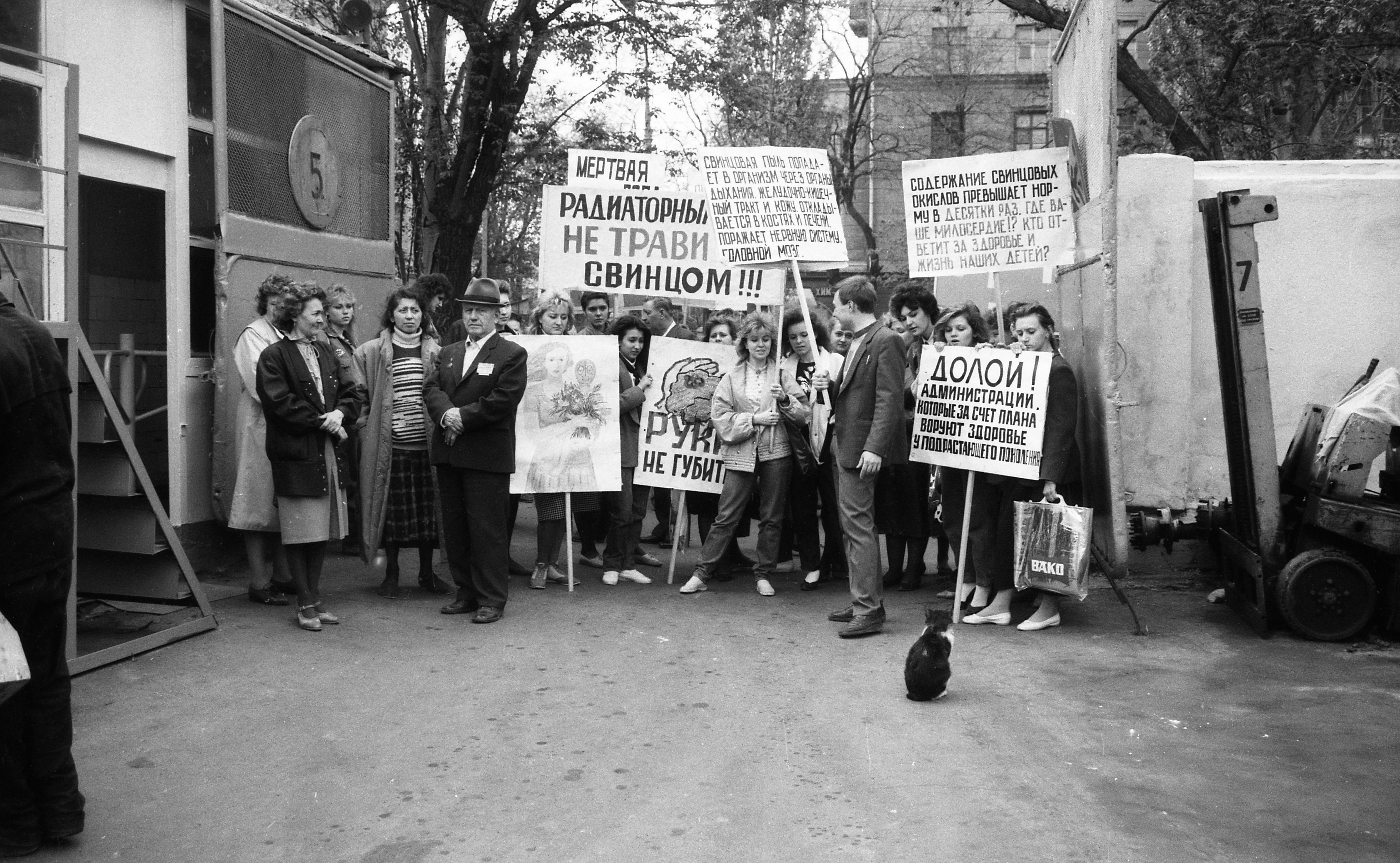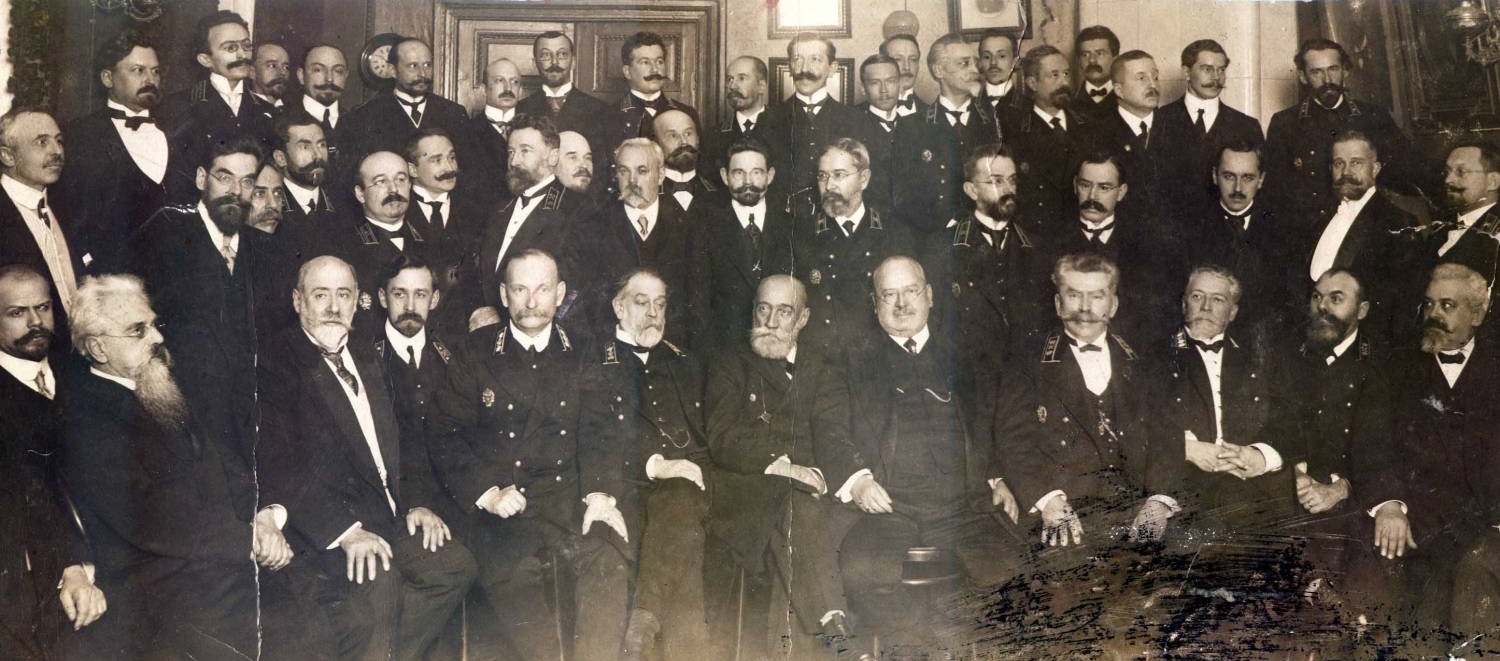Throughout human history, the environment has prompted us to act in solidarity and through joint action. Out of fear, emotion, compassion for nature, a sense of shame about the damage done, and anger in the face of short-sighted decisions, communities have braced themselves for action. In this way, protests in Mariupol about the appalling quality of the air have mobilized people for joint action – from the time of perestroika (1985-1991) until today. The sharing of images of protests by journalists has been almost as important as than the rallies and walkouts themselves, since the bright carnival images of protests have succeeded in attracting the attention of the global media.

A protest rally against a radiator plant in the center of Mariupol, late 1980s. Photo by Boris Dembitsky

Eco-protest in the square near the Mariupol Drama Theatre, 2018. Photo by Stanislav Ivanov
However, solidarity does not appear only at a “grass roots” level. Businesses have also joined forces across history to confront environmental challenges. Back in 1901, the Empire’s All-Russian Society of Sugar Mills issued recommendations “On Measures for Wastewater Treatment,” which made sewage treatment facilities mandatory. The congresses of the Empire’s Mining Industry Workers of Southern Russia established, among other things, a sanitary department at their council that dealt with the environmental impact on people’s health. The photos of the congress convey the nature of this care: this community of wealthy and high-profile men cared about progress and developing societal consciousness around nature and sanitation.

Council of the Congress of Mining Industry Workers of Southern Russia, Kharkiv, 1911 Photo from open sources
It is typical that entrepreneurs only began to be interested in these topics in response to perceived threats to the extraction of natural resources, or once the harm caused to people’s health and to the lives of livestock had already been proven, bringing the risk of litigation. Some typical solutions to such problems at the time were to locate production facilities away from people’s homes or to make pipes as high as possible to channel harmful gases into the upper atmosphere. It can be concluded that such acts of “solidarity” were motivated primarily by self interest, including the individual desire to breathe clean air, or the collective selfishness of entrepreneurs to preserve natural resources for future extraction. Joint action in the interests of the environment alone or for the benefit of non-human beings was rather exceptional. Historic attitudes towards the environment reveal the “tragedy of the commons.” If each of us acts in our own best interests, we will very quickly deplete the common resources. The prevalence of private interests, whether it is in the exploitation of the subsoil, determining the direction urban planning, or the maintenance of common spaces in high-rise housing blocks, calls into question the future of the environment and life for all.




